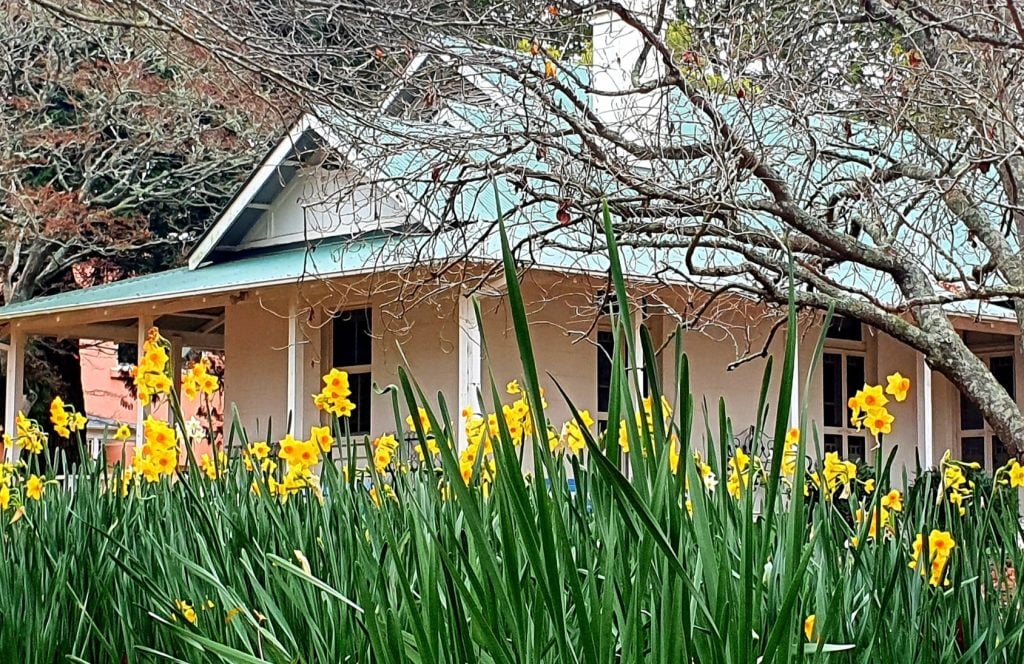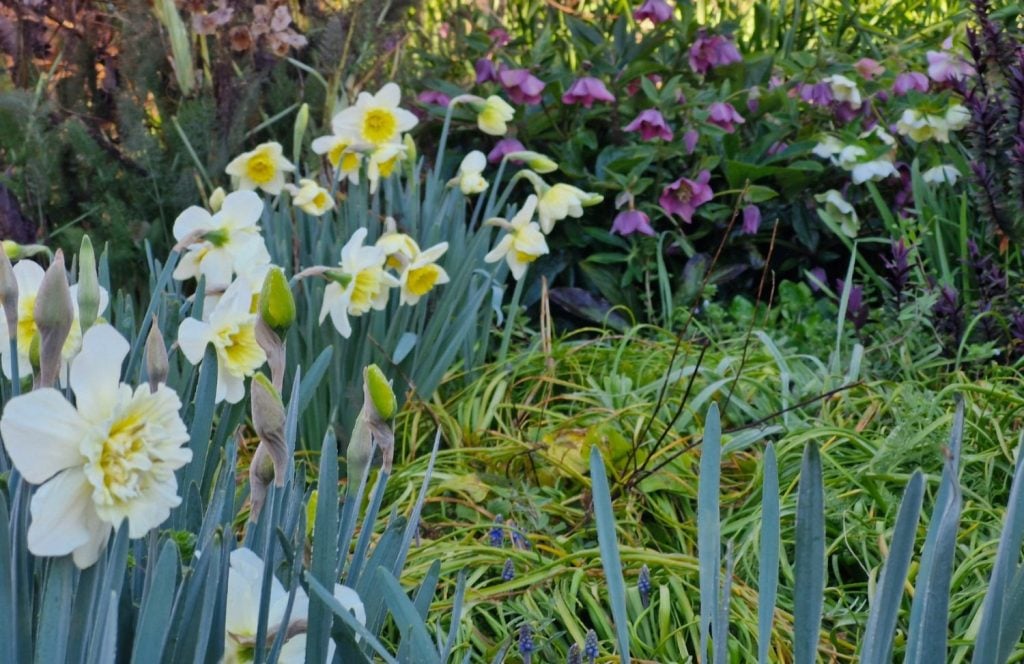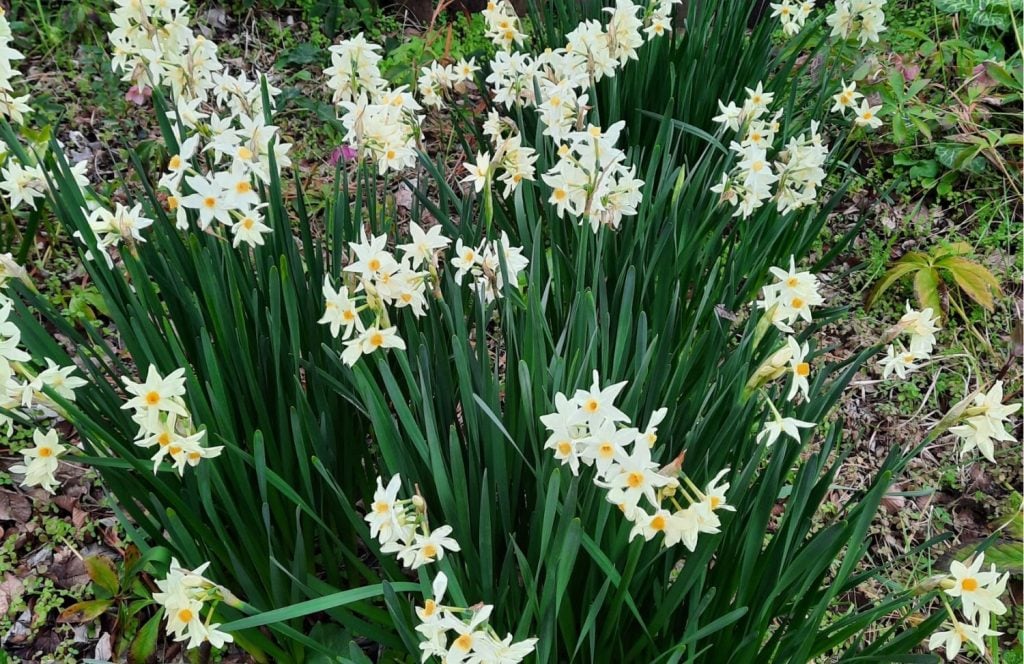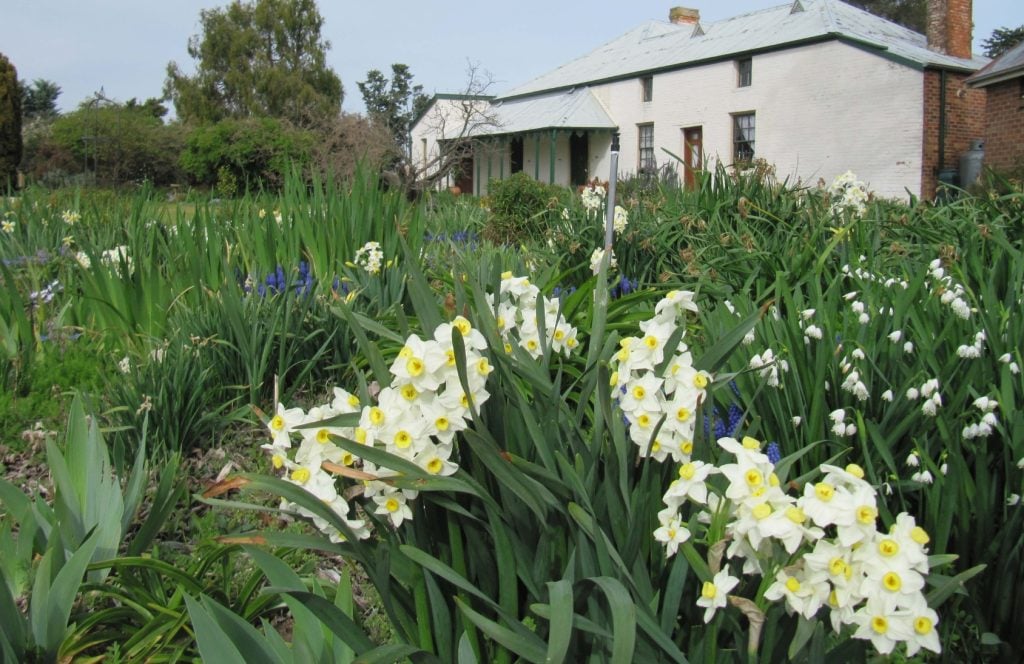Fondly known as a harbinger of spring, we look at the intriguing history of these flowers and reveal where to see them in full bloom.

I wandered lonely as a cloud
That floats on high o’er vales and hills,
When all at once I saw a crowd,
A host, of golden daffodils
Beside the lake, beneath the trees,
Fluttering and dancing in the breeze.
With striking flowers painted the colour of sunshine atop slender green stems, daffodils have long symbolised the onset of spring. Possessing a popularity that has endured through centuries and extended across countries, their jubilant beauty has inspired paintings and poems (including the celebrated lines of William Wordsworth above).

The origins of the daffodil can be traced back to Portugal and Spain where it first grew as a wildflower. Its botanical name, Narcissus, is thought to derive from the beautiful, yet vain, youth of Greek mythology, who wasted away gazing at his own reflection in a pool of water. Other theories claim that the genus Narcissus comes from the Greek word narkē, meaning numb. This is said to be because daffodils contain the highly poisonous compound lycorine which is toxic if ingested.

Whatever the truth of their provenance, daffodils have evolved into a common and highly vigorous garden plant. Today there are a staggering 27,000 different varieties recorded. Methodically keeping track of this list is the Royal Horticultural Society in the UK, which has published an anthology of daffodil cultivars since 1907. Previously housed in a small green book, the Classified List and International Register of Daffodil Names can now be found online. It’s ever-expanding catalogue, evidence of the world’s unwaning love of this cheerful bloom.

In Australia, Daffodils are thought to have been introduced to NSW at the time of early European settlement. They are best suited to the cool-climate regions of the state and grow well when planted in groups, in either pots or the ground. Their pointed tips first begin to break through the ground in late winter. However, it is spring, when their buds burst into full flower and the air fills with their heady scent, that daffodils reach the true height of their beauty.

Daffodils, and other flowers in the Narcissus genus, can be found at National Trust places across the state. From stunning plantings at Saumarez Homestead, picturesque swathes of blooms at Retford Park, yellow carpets of flowers at Everglades House & Gardens to sweet groupings pf flowers at Miss Traill’s House, there is an abundance of opportunities to see daffodils in late winter and spring. Although if you are planning a visit to Riversdale, head gardener Ros Loftus reports that a group of locals has already taken up prime position for viewing. A mob of kangaroos have moved into the river paddock – just in time to see the hundreds of varieties of daffodils soon on display.


 Facebook
Facebook Linkedin
Linkedin Email
Email